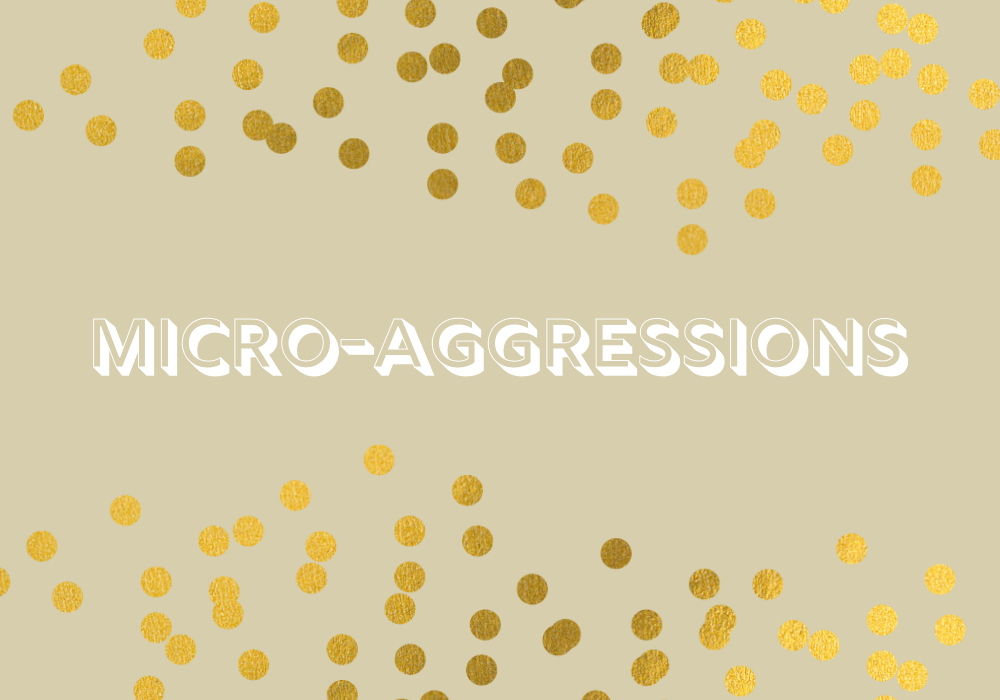I've learned a great deal over the past seven days. I've read and listened to a huge variety of opinions, theories, facts and statements from many voices. Each one is important, regardless of whether others stand in agreement. It has been a journey of understanding and enlightenment, and I am very glad to have taken this journey and continue forward (forever learning), despite the awful circumstance which prompted the first step.
Obviously, the subject of race is so multi-facted that the best that any of us can do to comprehend it is to listen and educate ourselves without the interjection of our own preconceptions. It may never be possible to fully understand all of the intricacies of such a vast topic, and even harder to reiterate to our friends, family and followers what we have learned, or implement our education, without making mistakes. But we should try, and we will learn much more in the process.
One learned phrase that I want to share today is 'micro-aggression'. Micro-aggressions often come from good intentions, but because they're based on widespread racist assumptions, they are more insulting than complimentary.
For example, perhaps you are intending to pay your black colleague a compliment, like saying they're having a 'good hair day' when they're wearing a straight hair wig. This could be seen as a micro-aggression because it plays into the negative assumption that wearing their natural hair would signify a 'bad hair day' (this is obviously just an example and the situation might require more context - i.e. If you also regularly compliment your colleague when they're wearing their hair naturally, then your compliment about their straight hair may not be seen as a micro-aggression, etc. Use your educated judgement).
The key here is to learn about common racial stereotypes (plenty of info online) and think of them before you speak.
I have also learned that, being from a non-black minority, I have benefited from the 'model minority' myth in my disposition to view micro-aggressions (towards myself) as compliments. In the past I've enjoyed people saying to me, "you're so tanned" or "you have an exotic look".
Really, I should have addressed the fact that: 1) it shows white privilege to covet another race's skin colour or ability to tan when that is one of the very things that help racists identify us, and 2) the word 'exotic' is used to objectify and sexualise women from minorities.
Moving forward, I will address these micro-aggressions in the hope that my friend/colleague/whomever will think before repeating the mistake with another person, be they black or from another minority. I will also make sure that I do not make these mistakes when addressing others, no matter how well-intentioned.
So how does this help us become a less racist society? Due to the fact that micro-aggressions are, as I said, based on widespread racist assumptions, addressing them might make people question why they have those assumptions in the first place and provide them with an alternative way of thinking.
In the grand scheme, addressing micro-aggressions may help (if only a little) to dissolve the negative stereotypes relating to black people, thus laying the foundations for a more inclusive society. There is no switch that you can press to turn off racism, but addressing micro-aggressions is a small step in the right direction.




No comments
Post a Comment